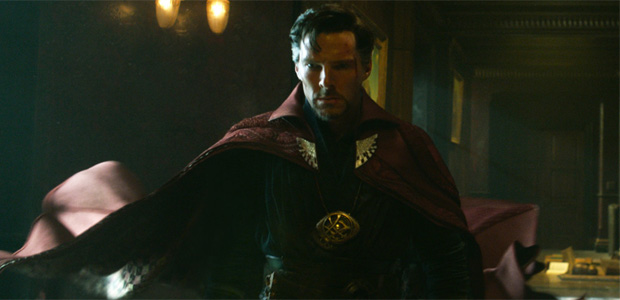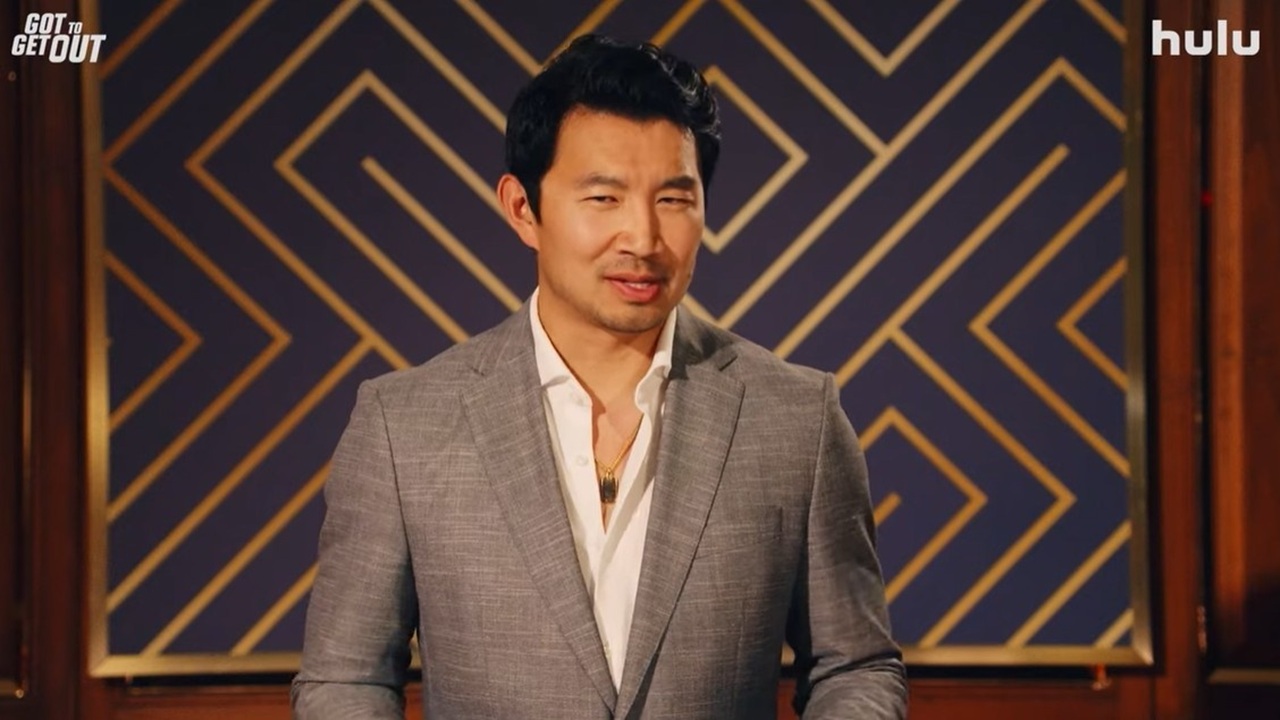Big-screen superhero origin stories aren't nearly as easy to make now as they were even just 15 years ago. When comic book movies were few and far between, the classic golden and silver age stories still managed to pop in modern day adaptations -- but as audiences have seen more and more of them, expectations have been continually raised, as has cognizance of repetition. As such, there is now, more than ever, a vital need for these kinds of introductions to show fans something that they've never seen before.
It's this heavy baggage that writer/director Scott Derrickson's Doctor Strange is carrying as it arrives in theaters -- but it's a weight that it's mostly able to juggle. In its structure and storytelling, there are certainly shades of Marvel origin films Iron Man and Thor, but what the film brings to the table to balance out its familiar elements is some of the most bombastic, exciting and beautiful action sequences we've seen in modern blockbusters, as well as the firm establishment of a legitimately exciting new hero in the Marvel Cinematic Universe.
To the film's credit, Doctor Strange is a tremendously faithful adaptation of the original comics from Stan Lee and Steve Ditko back in the early 1960s, but it's also basically a different variation on a recognizable story. Benedict Cumberbatch's Dr. Stephen Strange is a brilliant brain surgeon who is also an arrogant prick and really needs to be taken down a few notches - and he gets that treatment in the form of a car crash that completely destroys his hands. While initially devastating, it proves to be his big push on a trip of self-discovery towards hero-dom. Strange's path leads to a place called Kamar-Taj and The Ancient One (Tilda Swinton), who not only teaches him to become a sorcerer, but also, more importantly, less of an arrogant prick. It's a pretty standard hero's journey, but also specifically reminiscent of the aforementioned Iron Man and Thor, featuring many of the same story beats.
While not exactly predictable -- as I was actually very much surprised and delighted by twists and moves in the third act -- the treatment does make you wish that there was a bit more creativity taken just in the way that the story is told. As a perfect example, time is a subject in the film that is tremendously important both within the plot and the larger themes... and yet everything in the movie unfolds in a straight line. The script by Scott Derrickson, Jon Spaihts, and C. Robert Cargill does a great job introducing the world of magic to the Marvel Cinematic Universe and presenting audiences with an impressive new protagonist, but also feels like it's missing a unique narrative hook.
Doctor Strange has its shortcomings -- but it can be blissfully said that none of them come from the visual side of the cinematic experience, as Scott Derrickson has provided audiences with a truly mind-bending, gorgeous trip through the expansive multiverse. While Marvel fans got a taste of what to expect with the kaleidoscopic Quantum Realm at the end of Ant-Man, Derrickson's movie finds opportunity to crank that up to 11 at every opportunity, and it's honestly breathtaking. In an early sequence, The Ancient One rockets a skeptical Doctor Strange through a series of alternate dimensions, and as the perfectly-cast Tilda Swinton narrates through voice over the display of infinite universes, you can't help but be just as hypnotically stunned as the arrogant surgeon. Clear inspiration is drawn from the beautiful work of Steve Ditko in the character's earliest comics, and it's brought to life in a stunning fashion with awesome visual effects that just weren't cinematically available up until now.
Brilliant as it is to watch Doctor Strange merely float through worlds of both splendor and horror, it's all taken to the next level when the magic is a part of the big blockbuster action sequences -- which are truly unlike anything you've ever seen. Much more than just portal-hopping, which we also saw used to great effect in the finale of Thor: The Dark World, the film utilizes what is dubbed "the Mirror Dimension" to create what is essentially an M.C. Escher interpretation of our world -- where cityscapes can be shifted and turned at will and gravity flipped (all of it imperceptible to the non-magically inclined). These sequences, along with a finale that utilizes time manipulation in amazing ways truly make Doctor Strange stand out as one of the most visually inventive and incredible films put out by Marvel Studios.
Reflecting on Doctor Strange is a push and pull exercise, as it in many ways represents the best of what Marvel does, while being balanced by some of the franchise's most frequent flaws. As a triumvirate, Benedict Cumberbatch, Tilda Swinton, and Chiwetel Ejiofor are all perfect as Doctor Strange, The Ancient One and Mordo (one of Strange's allies and teachers, and a devout follower of The Ancient One), but the origin story's necessity of focus on the lead characters leaves you wanting a lot more from its incredibly talented supporting cast, including Benedict Wong's Wong (the strict librarian at Kamar-Taj), and Rachel McAdams' Christine Palmer (Strange's former flame and fellow surgeon). Incredible as the action sequences are, we are again given an antagonist in Kaecilius (Mads Mikkelson) who has interesting ideology but not a fleshed-out arc or enough screentime to be perceived as a legitimate threat. At the very least, one common Marvel problem that is wonderfully fixed is that composer Michael Giacchino provides a memorable harpsichord-heavy score and theme that will have you humming days later.
By the time the second post-credits scene plays out and the words "Doctor Strange will return" appear in big white letters against a black backdrop, you're definitely excited for more of the titular character... but part of that does come just from wanting more from the hero's first big screen adventure. After eight years and fourteen films from the Marvel Cinematic Universe, it can be said that Doctor Strange doesn't land in the Top Five in the franchise, but it does land in my own personal Top 10, and is a legitimately fun and trippy blockbuster that should be a gateway to a lot more fun, original, and mystical features in the future.

Eric Eisenberg is the Assistant Managing Editor at CinemaBlend. After graduating Boston University and earning a bachelor’s degree in journalism, he took a part-time job as a staff writer for CinemaBlend, and after six months was offered the opportunity to move to Los Angeles and take on a newly created West Coast Editor position. Over a decade later, he's continuing to advance his interests and expertise. In addition to conducting filmmaker interviews and contributing to the news and feature content of the site, Eric also oversees the Movie Reviews section, writes the the weekend box office report (published Sundays), and is the site's resident Stephen King expert. He has two King-related columns.











